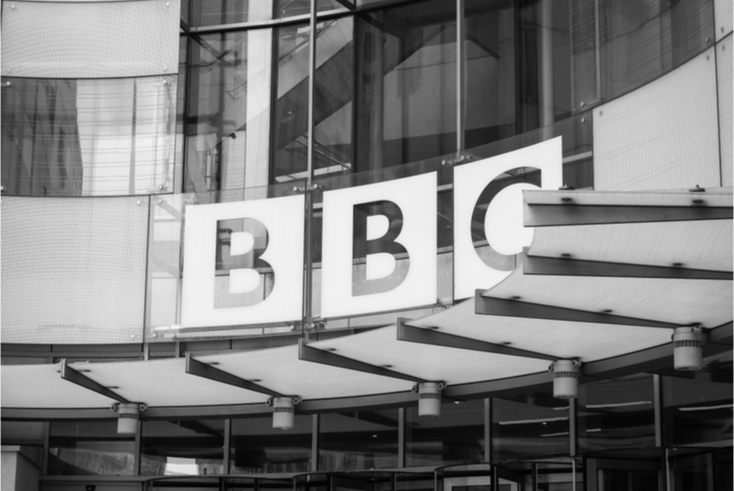The BBC shouldn’t trade truthful reporting for impartiality

Opinion
In today’s climate, the BBC can’t afford to sacrifice contextual, in-depth reporting in the name of ‘balance’.
It isn’t particularly newsworthy to state that, once again, the BBC has been embroiled in controversy over its impartiality rules. In fact, in its century-long history, it’s hard to pinpoint a time when the broadcaster wasn’t caught up in a debate, complaint or scandal of this sort.
The incident I’m talking about is, of course, Gary Lineker’s recent run in with his employer. Without going into too much detail (as I’m sure you’ve already heard about it) last week he was publicly reprimanded – aka wrist slapped — for an incident back in February in which he questioned whether the Tories would be handing back party donations from Russians after Liz Truss (who was foreign secretary at the time, if you can imagine that) suggested the Premier League should boycott the Russian-held Champions’ League final.
And her party will hand back their donations from Russian donors? https://t.co/1QCzcmAGOF
— Gary Lineker 💙💛 (@GaryLineker) February 23, 2022
The BBC complaints department took such a bashing that it decided that, despite Lineker not being contractually held to the same impartiality standards as his News presenting counterparts, given his fame and status, he should have known better and therefore would receive a telling off anyway.
Said telling off was given last week, yet a quick look at today’s headlines tells me that this is already old news. The BBC investigation team are preparing to haul their weary bones off the bench once again to look into another mishap – this time from anchor Maxine Croxall, who laughed live on air at the fact that Boris Johnson was dropping out of the latest Conservative party leader race.
BBC presenter Martine Croxall asks “Am I allowed to be this gleeful? Well I am!”
The news broke just minutes earlier that Boris Johnson had pulled out of the race to become PM.
Some viewers said they’ve complained to Ofcom claiming it breaches BBC impartiality. pic.twitter.com/Av2s8ASfdM
— Gareth Davies (@GD10) October 24, 2022
“Am I allowed to be this gleeful?” she asked, her face splitting into a rapturous grin. “Well, I am!”
The answer BBC Director General Tim Davie would give her is, of course, “no. You are not.”
Sharing both sides even when one isn’t particularly credible
Upon joining the Beeb back in November 2020, he stated in no uncertain terms that restoring trust in the corporation’s impartiality was his utmost priority. But standing here two years on, whether that is being done effectively and successfully is open to debate.
Over the last century, the BBC has, in its own words, striven to “create a single national conversation. Not one that everyone agreed with, rather that everyone could have some foundation for discussing things that would shape their lives more carefully.”
Yet given the most prominent impartiality rows of recent years, it seems we’re at risk of ending up with a BBC that’s so focused on not upsetting either the government or catch-out-culture hobbyists that it will favour sharing both sides of an argument over contextual, in-depth reporting – even when one side isn’t particularly credible.
The droves of high profile, high quality journalists leaving the BBC due to its restrictions are telling enough. Andrew Marr, Jon Sopel, Emily Maitlis, Jane Garvey and Fi Glover have all jumped ship in recent months, proving that the prestige of the corporation is no longer going to cut it when the opportunity to speak more freely is on offer.
Glover even said it herself. Speaking of her and Garvey’s move to Times Radio, she stated that they found the offer to “return to solid journalism appealing.”
The need for nuance is more pressing than ever
And there’s the rub. The point of journalism is to offer people the opportunity to think differently, to give them the tools to explore an issue further and, most importantly, to keep them informed of context and facts.
That the Conservative party has Russian related donors is a fact. That Boris Johnson, who was ousted just weeks ago for lying on multiple occasions, might have become the leader of the country again, would have undoubtedly put the government’s competency into question. That the recent mini budget inflicted on the country by Truss was radical is a widely accepted viewpoint. Any opposition to these statements might be showing ‘the other side of the argument’, but one that isn’t that plausible, and the BBC would do better to stand behind this than to get caught up in not appearing to take sides.
Now, don’t get me wrong. I agree that, just as a parent shouldn’t show favouritism with their children, the BBC shouldn’t take sides. I also agree that laughing live on air might not have been the best way for Croxall to express herself. What I don’t agree with, however, is the idea that its impartiality should come at the expense of truthful reporting.
Emily Maitlis, who has been quite vocal about the BBC since her exit, summed it up neatly in her observations of the broadcaster’s widely-criticised Brexit referendum coverage. As covered by the Financial Times, she said: “It might take our producers five minutes to find 60 economists who feared Brexit and five hours to find a sole voice who espoused it, but by the time we went on air we simply had one of each; we presented this unequal effort to our audience as balance. It wasn’t.”
Just as a parent reprimanding one child for breaking a set of reasonable rules doesn’t mean they love the other more, BBC presenters and journalists that hold the government to account, that favour moral conviction over appeasement, shouldn’t be seen as a breach of impartiality. Because if the BBC isn’t standing for those things, what good is it really standing for? And in the wake of the current political and social climate, the need for this nuance is more pressing than ever.
If the BBC cannot accept that it should pursue stories or questions that favour truth and context, that favour reason over the radical, even when they appear as a criticism to some, then its role as a reliable source in the days to come is questionable.
 Bianca Barratt is a freelance journalist and editor and writes features across business, lifestyle and culture. A former lifestyle writer and shopping editor for the London Evening Standard, she is now a senior contributor to Forbes Women and has written for titles including The Sunday Times, Independent, Cosmopolitan, BBC Good Food and Refinery29. She writes for The Media Leader each month.
Bianca Barratt is a freelance journalist and editor and writes features across business, lifestyle and culture. A former lifestyle writer and shopping editor for the London Evening Standard, she is now a senior contributor to Forbes Women and has written for titles including The Sunday Times, Independent, Cosmopolitan, BBC Good Food and Refinery29. She writes for The Media Leader each month.



